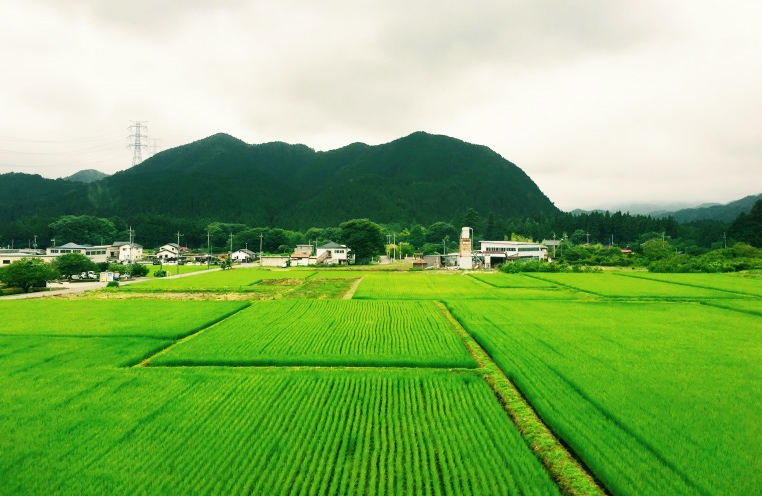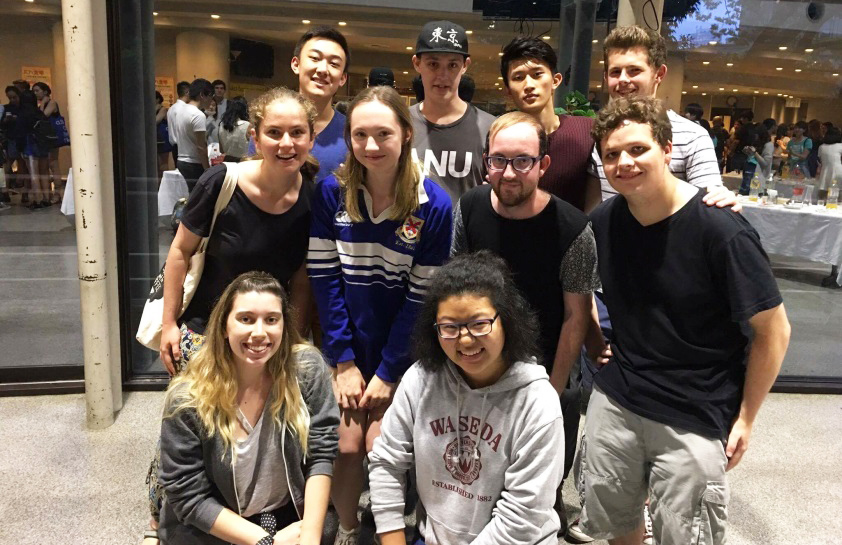Participants Voice
2016

Livija Berzins
- Home Institute:
The Australian National University
I had briefly been to Japan once when I was quite young, but I could barely remember any of it, so I was quite excited to experience Japan more thoroughly. But I come from a small regional town, and was therefore completely unprepared for the massive size and population of Tokyo. On my first day I stood in the middle of Shibuya Crossing, amazed and admittedly a little bit daunted by the sheer number of people that surrounded me – I later found out that more people cross at a single light change than the entire population of my town! I realised that each of these people had a life as intricate as mine, and I suddenly felt very small. In that moment, my entire existence was put into perspective - for the first time I think I fully appreciated that I really was only one tiny person amongst 7 billion people in the whole entire world. Putting things into perspective really became a recurring theme of my experience at the Waseda Summer Session, from what I learnt in my classes, to what I learnt from all the people I met and from the things I did during my time in Tokyo.
Despite my minor existential crisis on day one, nothing could curb my excitement. On the first day of the session I was very impressed with the university campus, which boasts beautiful gardens and integrates almost seamlessly into the city, and the student interns and staff were really friendly. The classes I took were History 1, Politics 3 and Japanese 1. They were of the perfect difficulty; challenging enough to be interesting, but relaxed enough to be enjoyable. History 1 was focused on the history of contemporary Japan from 1989 onwards, which proved to be very useful in helping us to understand the current economic, social and historical context of where we were living for the month. In Politics 2 we learned about Japan’s role on the international stage, and it was fascinating to explore Japan’s complex relations with countries such as China, Korea and the US, with a focus on apology politics. Japanese language classes were intensive, but everything we learned was very practical, and we could immediately put what we learned in the classroom to use in everyday life. These classes were very valuable because they helped me to put everything I saw in Tokyo into context, and provided me with a more meaningful experience outside the classroom. I also came to appreciate the incredible global significance of Japan’s history and actions as an international player, which I know will provide me with a valuable perspective and a deeper understanding of many global issues as I continue my degree in Australia.
We were given plenty of opportunities to socialise with the other students, and I made friends from all over the world. I had lots of time to see the sights of Tokyo and many of my fondest memories of my trip are from sightseeing with the wonderful friends I made. Some of the things I did during the Summer Session included visiting the Pokemon Center with a group of people I had only just met straight after the orientation, going to the top of Tokyo Skytree, spending an afternoon in the beautiful Shinjuku Gyoen National Park, shopping at the famous shopping centre Shibuya 109, and having a really fun night at karaoke –until they handed us a bill far bigger than we had initially intended it to be!
A real highlight was the field trip to Nikko. It was refreshing to see the more rural side of Japan and the temperature was much cooler in the mountains. On the first day of the field trip we were taken to see the Nikko Tosho-gu shrine, which was one of the most amazing and intricate structures I have ever seen. Staying in a traditional-style hotel in a room with a group of other students was really fun, and we were served a very delicious meal for dinner that night, with the whole group eating all together. On the second day I chose to visit Nikko Edo Wonderland, which was a fun insight into what Japan might have looked like in the Edo period.
By the end of the trip, Tokyo was really beginning to feel like home. I realised by this point that even though so many people live there, the scale of it is not so big as to render everything impersonal, as I had initially thought. I recognised some of the people who made the morning commute from around my residence, I knew my way around campus and became able to recognise the staff that I saw daily, and the man who sold bubble tea on the street corner just before I got home even knew my order by heart! I was touched by the kindness and warmth I received from the people of Japan, from people I saw almost daily to total strangers on the street. I was sad to leave, but I definitely know that I will visit Japan again. I will really miss all the wonderful friends, teachers and staff that I came to know over the course of the session. I am so grateful and honoured that I was chosen to take part, and I would like to say a big thank you to all the staff at Waseda who made everyone’s experience so fun and rewarding!
The Waseda Summer Session has given me an invaluable understanding of Japanese life, culture and perspectives, the opportunity to meet some incredible people, and a set of wonderful memories that I will treasure for life.







